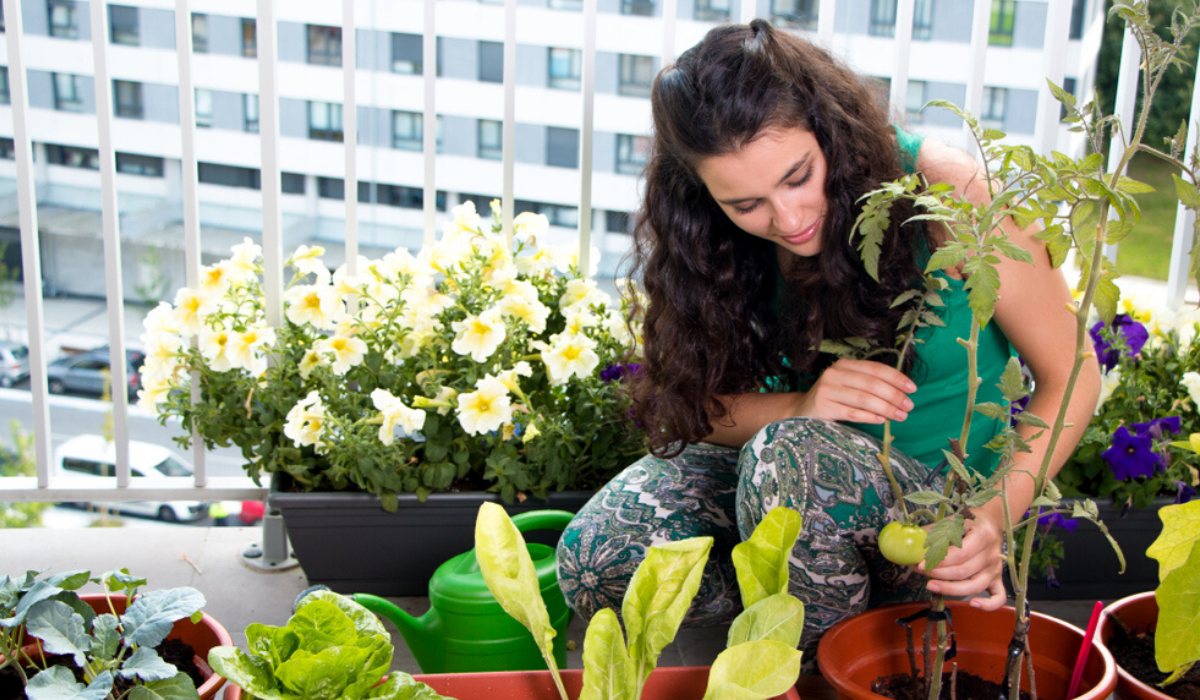Growing herbs in your garden is a delightful way to add flavor, fragrance, and freshness to your culinary creations. However, choosing the right herbs for your garden can be overwhelming with the plethora of options available.
In this blog post, we will provide valuable tips to help you select the perfect herb plants for your garden. From considering your climate and sunlight requirements to understanding growth habits and culinary preferences, these insights will empower you to grow healthy and thriving herb plants.
Consider your climate
When selecting herb plants for your garden, it’s crucial to consider your climate. Different herbs thrive in different climate zones. Some herbs, such as basil and tomatoes, love warm and sunny conditions, while others, like mint and cilantro, prefer cooler temperatures.
Research the hardiness zones, and temperature ranges suitable for each herb to ensure they will grow successfully in your area. By choosing herbs that are well-suited to your climate, you increase the chances of healthy growth and bountiful harvests.
Assess sunlight requirements
Sunlight is a vital factor in herb growth and flavor development. Evaluate the sunlight conditions in your garden to determine the available light levels. Some herbs, like basil, rosemary, and thyme, require full sun, which means at least 6-8 hours of direct sunlight per day.
Others, such as mint and parsley, can tolerate partial shade. Consider sun exposure in different areas of your garden and choose herbs that match the available light levels. Proper sunlight exposure will promote vigorous growth and enhance the flavor profiles of your herbs.
Determine space availability
Before selecting herb plants, assess the space available in your garden. Some herbs, like mint and oregano, tend to spread vigorously and can become invasive if not contained. It’s recommended to grow these herbs in pots or containers to prevent them from overtaking your garden.
If you have limited space, consider vertical gardening techniques or hanging baskets to maximize herb cultivation. Evaluate your garden’s dimensions and plan accordingly to ensure that each herb plant has enough space to grow and thrive.
Research growth habits
Understanding the growth habits of herbs is an essential part of successful gardening. Whether you’re new to gardening or an experienced green thumb, knowing about the longevity of herbs can help you plan your garden and maximize your yield. Some herbs, including basil, cilantro, and dill, are annuals; they complete their life cycle in a single season and need to be replanted each year.
In contrast, herbs like rosemary, thyme, and sage are perennials; they can continue to provide bountiful harvests for years with proper care. When planning your garden, it’s important to consider the longevity of each herb and select a mix of annuals and perennials to ensure a continuous supply of fresh herbs throughout the growing seasons.
If you’re dealing with unwanted pests, such as spiders, consider looking into spider pest control methods to keep your garden healthy and flourishing.
Consider culinary preferences
When choosing herb plants, take into account your culinary preferences. Think about the herbs you frequently use in cooking or the flavors that appeal to you. For example, if you love Italian cuisine, basil, oregano, and thyme are excellent choices. If you enjoy Asian flavors, consider planting cilantro, Thai basil, and lemongrass.
Selecting herbs that align with your culinary preferences will ensure that you can easily incorporate them into your dishes, adding a delightful burst of flavor and aroma to your cooking endeavors.
Plan for companion planting
Companion planting is an effective technique that involves planting specific herbs alongside other plants to benefit both parties. Some herbs, such as basil, dill, and marigold, act as natural pest repellents or attract beneficial insects that aid in pollination. Research companion planting combinations to create a harmonious and productive garden.
For example, planting basil alongside tomatoes can enhance the flavor of the tomatoes and deter pests. By carefully planning your herb garden layout and incorporating companion plants, you can create a natural balance and promote the overall health and vitality of your garden.
Check soil requirements
Different herbs have varying soil preferences. Evaluate your garden’s soil type (sandy, loamy, or clay) and its pH level. Some herbs, like lavender and rosemary, prefer well-draining soil with a slightly alkaline pH. Others, such as parsley and mint, thrive in moister conditions with a slightly acidic pH.
Amend the soil if necessary to provide optimal growing conditions for your chosen herbs. Adding organic matter or using raised beds can improve soil structure and fertility. By understanding and meeting the soil requirements of your herbs, you create an environment conducive to healthy root development and overall plant growth.
Read growing instructions
Lastly, when purchasing herb plants, carefully read the growing instructions or plant tags that accompany them. These instructions provide valuable insights into the specific care requirements of each herb. Pay attention to watering needs, fertilization recommendations, and any other specific care instructions.
Some herbs may have unique preferences or special considerations. By following the provided guidelines, you can ensure that your herbs receive the optimal care and attention they need for robust growth and abundant harvests.
Conclusion
Selecting the perfect herb plants for your garden is a crucial step towards growing healthy and thriving herbs. By considering your climate, assessing sunlight requirements, determining space availability, researching growth habits, aligning with culinary preferences, planning for companion planting, checking soil requirements, and reading growing instructions, you set the foundation for a successful herb gardening journey. Enjoy the pleasures of harvesting fresh herbs from your garden and elevate your culinary creations with their vibrant flavors and fragrances. Happy herb gardening!




